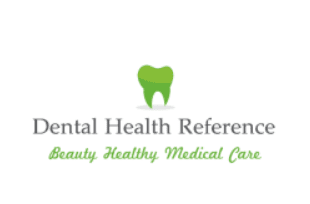
The journey through wisdom teeth recovery can be accompanied by a myriad of questions and uncertainties. Understanding the ins and outs of the recovery process is crucial for a smooth and successful healing experience. In this blog, we’ll delve into frequently asked questions about wisdom teeth recovery, providing comprehensive answers to help ease your concerns.
- Why Do Wisdom Teeth Need to Be Removed?
Wisdom teeth Sydney, also known as third molars, often need removal due to issues such as impaction, crowding, or improper alignment. These factors can lead to pain, infections, and other dental problems.
- How Long Does Wisdom Teeth Recovery Take?
The duration of recovery varies, but the initial healing phase typically lasts about 1-2 weeks. Complete recovery, including bone and soft tissue healing, may take several weeks to a few months.
- What Can I Eat After Wisdom Teeth Removal?
During the first few days, stick to a soft food diet to avoid irritation to the surgical sites. Opt for yogurt, mashed potatoes, smoothies, and soups. Gradually reintroduce a regular diet as your comfort allows.
- How Can I Manage Pain After Wisdom Teeth Removal?
Manage post-wisdom teeth removal pain by taking prescribed medications as directed, usually a combination of acetaminophen and ibuprofen. Follow a regular dosing schedule to stay ahead of discomfort.
Apply ice packs to reduce swelling, alternating with heat therapy after the initial 24 hours. Rest, maintain proper hydration, and avoid strenuous activities. If pain persists or worsens, consult your dentist for further guidance.
- Can I Smoke After Wisdom Teeth Removal?
Smoking can delay healing and increase the risk of complications. It’s advisable to abstain from smoking for at least a few days, if not longer, post-surgery.
- When Can I Resume Normal Activities and Exercise?
Avoid strenuous activities for the first few days. Gradually reintroduce exercise based on your comfort level. Listen to your body and avoid activities that could potentially impact the surgical sites.
- How Should I Clean My Mouth After Wisdom Teeth Removal?
Follow your dentist’s recommendations for oral hygiene. After wisdom teeth removal, maintain oral hygiene by gently rinsing your mouth with a saltwater solution. Mix one teaspoon of salt in a glass of warm water and swish it around your mouth, being careful not to disturb the surgical sites.
Avoid vigorous rinsing or using mouthwash containing alcohol. Brush your teeth gently, avoiding the extraction sites. Follow your dentist’s specific instructions for the first few days to ensure proper healing.
- What Should I Do If I Suspect an Infection?
If you notice signs of infection such as increased swelling, persistent pain, or discharge, contact your dentist promptly. Prompt treatment is crucial to prevent the infection from spreading.
- Is Flying Safe After Wisdom Teeth Removal?
While flying itself is generally safe, changes in air pressure can affect your healing gums. If possible, wait a few days before flying. Stay hydrated during the flight and follow your dentist’s advice.
- Can I Drink Alcohol After Wisdom Teeth Removal?
Alcohol can interact with pain medications and slow down the healing process. It’s advisable to avoid alcohol for at least the first few days post-surgery or as directed by your dentist.
- What About Wisdom Teeth Removal in Older Adults?
While age isn’t a strict barrier to wisdom teeth removal Sydney, the recovery process may differ for older adults. Healing may take longer, and additional considerations may be needed based on individual health.
- How Can I Manage Anxiety Before Wisdom Teeth Removal?
It’s common to feel anxious before surgery. Communicate your concerns with your dental team and consider relaxation techniques such as deep breathing or meditation. Knowing what to expect can also alleviate anxiety.
- What If I Accidentally Dislodge a Blood Clot?
Blood clots are crucial for healing. If one is dislodged prematurely (a condition known as dry socket), contact your dentist immediately. Avoid activities like sucking through straws that could dislodge the clot.
Conclusion: Navigating Wisdom Teeth Recovery with Confidence
Embarking on the wisdom teeth recovery journey can be less daunting when armed with knowledge. By understanding these common FAQs and following your dentist’s instructions diligently, you’ll navigate the recovery process with confidence. Remember, every individual’s experience is unique, so communicate openly with your dental team and prioritise self-care for a successful recovery. To know more about the wisdom teeth removal cost Sydney, get in touch with a dentist today.
